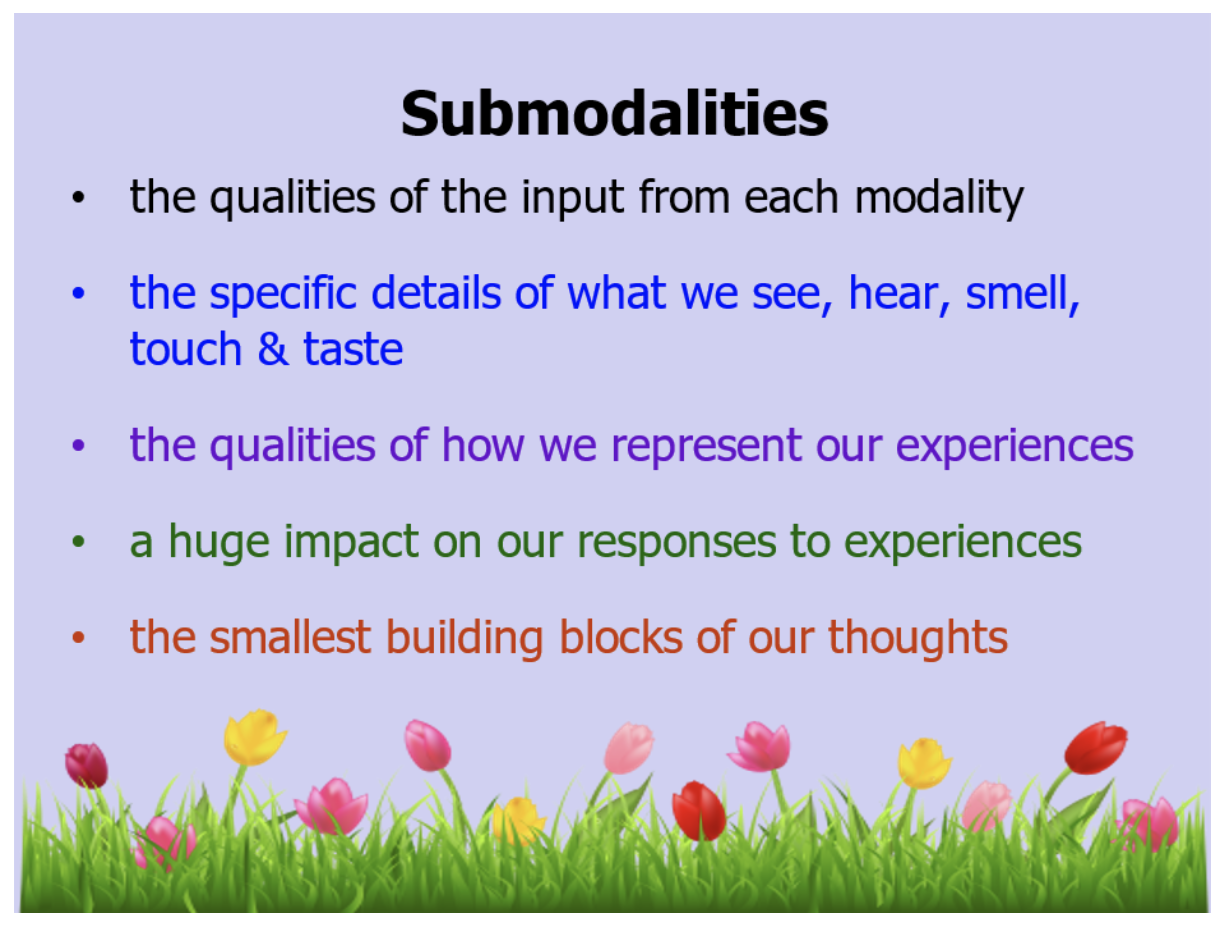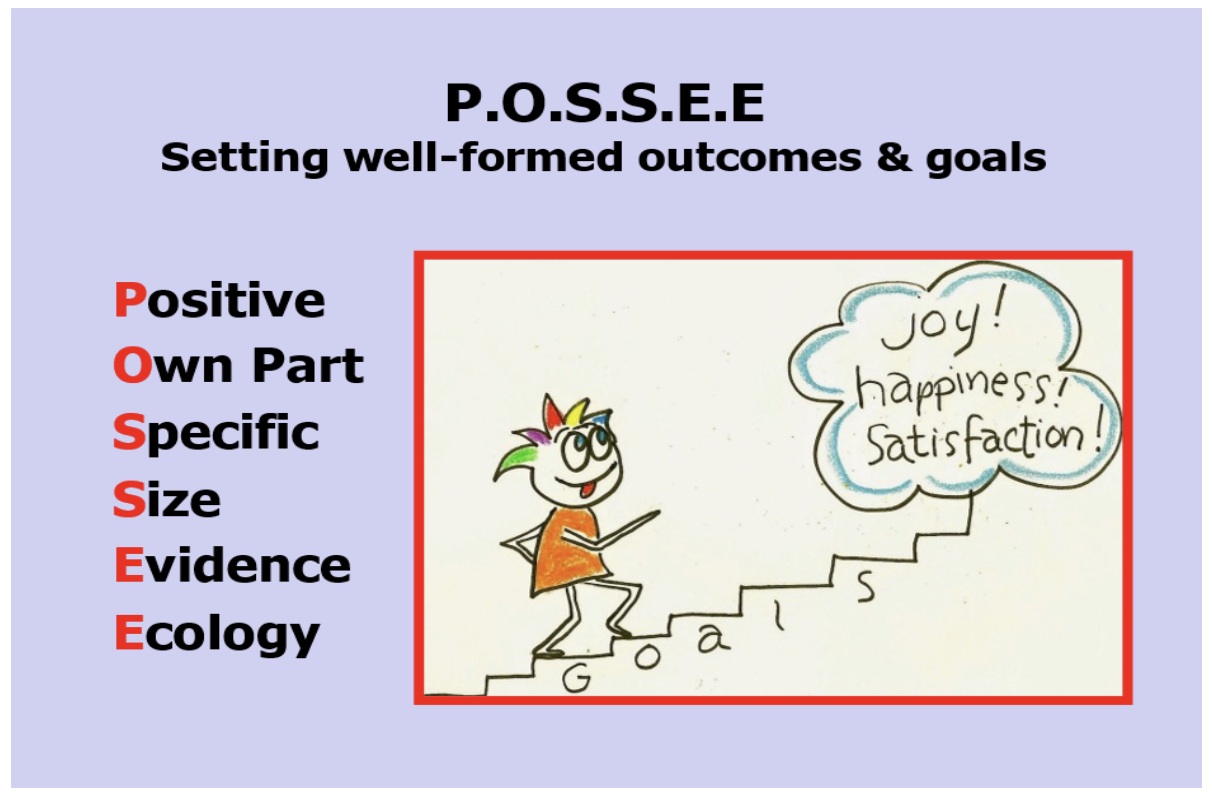18
MENTAL HEALTH PROMOTION
MENTAL HEALTH PROMOTION
Inhoud
This Learning Playlist is part of the international training course Mental Health Promotion in the Youth Field. There are 3 parts to this training.
Before the Mobility
Participants of this international training course are requested to prepare by doing some research into the NLP that we will use as a model for our learning about Mental Health Promotion. They do this through the Learning Activities:
- What is NLP
- History of NLP
- NLP and System Theory
The First Part of the Mobility
For the first 6 days of the Mobility, participants will experience youth work activities and reflect on their learning from that day using the following Learning Activities:
- Change the world, Change your mind
- Step by Step to great Rapport
- Sensory Acquity, Mind-reading for beginners
- Building the Picture, Setting the Outcomes
- Tools and techniques - 1
- Tools and techniques - 2
The Second Part of the Mobility
Participants will transfer their learning into (digital) learning activities for the people they work with and participate in a youth work market with local youth work organisations.
LifeComp competence framework
To support recognition of non-formal learning and to support the development of the “Personal, Social and Learning to Learn” skills within youth work we make in this training an connection between the learning happening during the training and the LifeComp Competence Framework.
Spcifically will be worked on the following skill zones: flexibility, growth mindset, critical thinking, collaboration, self-regulation, communication, empathy, well-being and managing learning.
Open Badges
In each Learning Activity and for the total Learning Playlist participants can earn Open Badges. Sometimes the badges will be issued via checking evidence by accredited NLP practisioners, other times via international trainers and also via self-assessment by the earners itself.
This project is co-funded by ErasmusPlus
Activiteiten om te voltooien
Voltooi de volgende activiteiten, verdien badges en je zult de voortgang van je playlist zien
Inhoud
We are sure you welcomed a shorter training day of the international training course Mental Health Promotion in the Youth Field today and hope you enjoyed your time exploring The Netherlands. Here’s a short recap of what we did in the training room today:
Submodalities: These have been described as the “building blocks of our experiences”. Having looked at how we experience our lives through our 5 senses, submodalities are the specific qualities of the images we see, the sounds we here and the feelings we have.

P.O.S.S.E.E. We switched our attention to focus on setting well-formed outcomes to our work in mental health promotion. Whatever our role with other people, youth worker, coach, therapist or mentor, our first question needs to be “What do you want?”. If the answer to this question is not clear, we can waste time and rapport. The P.O.S.S.E.E. Model gives us a framework to get really clear outcomes.

Ontvang een activiteitenbadge
Building the Picture, Setting the Outcomes Behaal deze badge
This badge is a reflection tool for the fourth day of our training Mental Health Promotion in the Youth Field. Today we had a shorter training day, with time off in the afternoon to explore the local area. Even so, we had chance to learn a couple of very useful and important exercises for our youth work:
- Submodalities are the building blocks of experience, so we had a chance to use them to do some building and rebuilding of our own.
- A major focus of NLP is that we need to have a very clear and well-formed outcome for our work. This is as true in youth work as it is in our personal life. The P.O.S.S.E.E. Model helps us to do this in a systematic way.
The holder of the badge will have worked either on their own or in a small group to reflect on the questions:
- how the day has gone
- what has been learned
- how to use this in your youth work
- how else to use it.
The questions are designed to optimise generative learning: they are not just about what the participant has learnt but also how they can use the learning in their work and personal life.
- L1.3: Reflecting on other people’s feedback as well as on successful and unsuccessful experiences to continue developing one’s potential,
- L3.2: Planning and implementing learning goals, strategies, resources and processes,
- P1.1: Awareness and expression of personal emotions, thoughts, values, and behaviour,
- P1.2: Understanding and regulating personal emotions, thoughts, and behaviour, including stress responses, and
- P2.3: Managing transitions in personal life, social participation, work and learning pathways, while making conscious choices and setting goals.
Taken
Taak nr.1
Bewijs bevestigd door: één activiteitenorganisator
- How has today gone for you?
- What have you learnt?
- How can you use this in your youth work?
- How else can you use it?
Vaardigheden
#Mental Health Promotion
ESCO
#campaign for youth work in the local community
LIFECOMP
#Flexibility
LIFECOMP
#Growth mindset
LIFECOMP
#Critical thinking
ESCO
#internationale samenwerkingsstrategieën ontwikkelen
ESCO
#massages geven
LIFECOMP
#Collaboration
LIFECOMP
#Self-regulation
ESCO
#communiceren over het welzijn van jongeren
ESCO
#talk with the selected community
ESCO
#werken in partnerschap met gebruikers van sociale diensten
ESCO
#relaxation methods
ESCO
#huidige praktijken proberen te innoveren
ESCO
#check story
LIFECOMP
#Communication
LIFECOMP
#Empathy
LIFECOMP
#Wellbeing
ESCO
#mentale gezondheid bevorderen
LIFECOMP
#Managing learning
Activiteiten: 17
Gestart: 56
Voltooide playlist: 12
Tijd om te voltooien: 16 dagen 9 uren 15 minuten
Delen:
Organisatoren
Cities of Learning Network
Badge-uitgever erkend met
Wijzigen in een andere taal:

